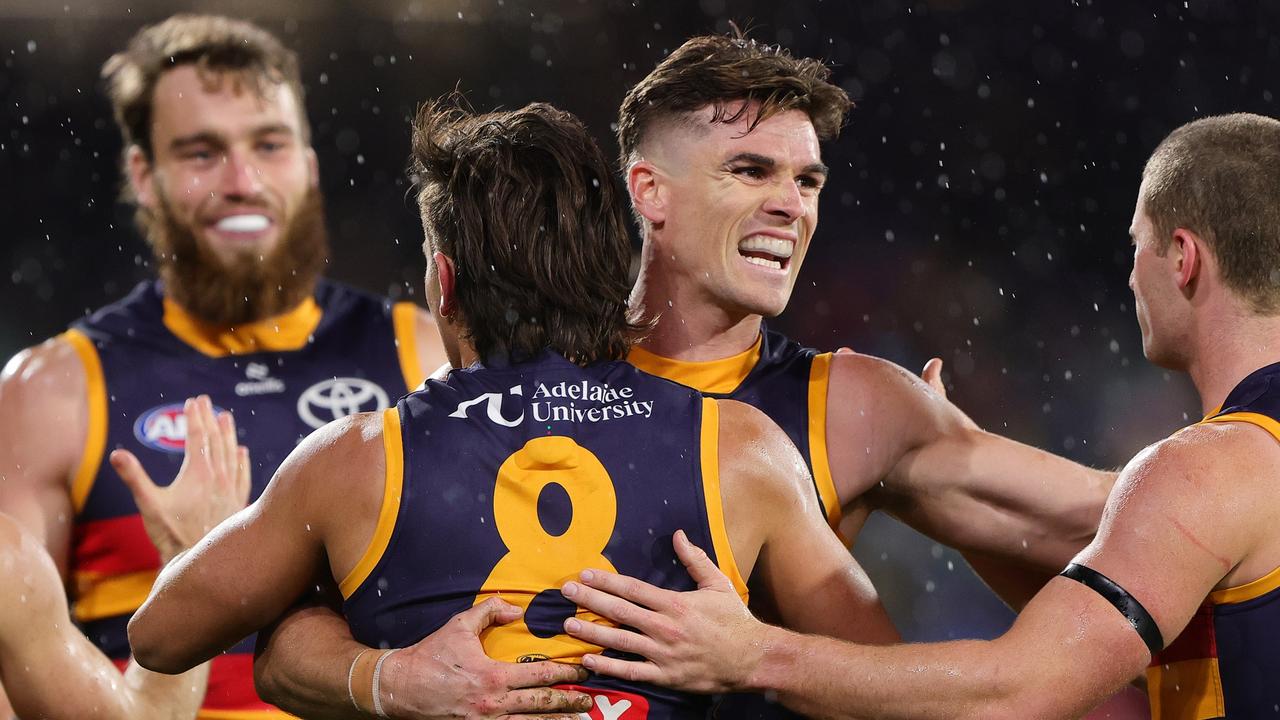Port Adelaide’s move into China has grown beyond expectations to have the AFL seeing the same vision
Five years ago Port president David Koch saw opportunity in China. As the Power prepares for its third game in Shanghai, the AFL is fully behind the strategy that has exceeded expectations.
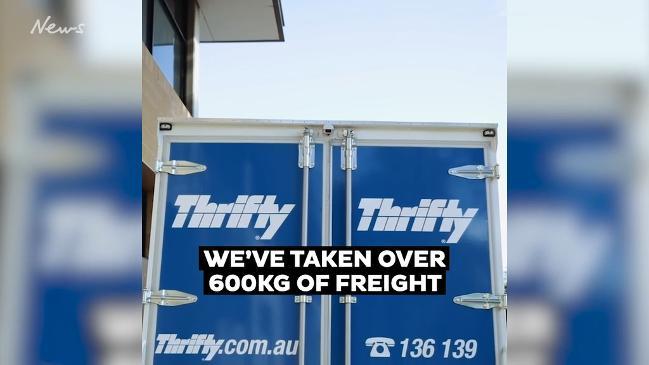
Port Adelaide
Don't miss out on the headlines from Port Adelaide. Followed categories will be added to My News.
- Cornes: If Jonas isn’t fit, don’t pick him
- No worry four Saint over ‘unlucky’ number
- Port ‘to breathe fire’, shake Power naps in China
When Port Adelaide Football Club president David Koch first flagged his AFL team playing a game in China, his bold project passed without reaction … even from his club’s members.
It was March 7, 2014 — and his audience of Port Adelaide sponsors, members and club staff was more fascinated in seeing the wrapping taken off Adelaide Oval as the builders were clearing away the AFL’s newest venue; celebrating the news of four players such including star utility Justin Westhoff and young gun Ollie Wines signing new contracts and critiquing the Power’s new television commercial with coach Ken Hinkley declaring: “We will turn up; we will never give up because we are Port Adelaide.”
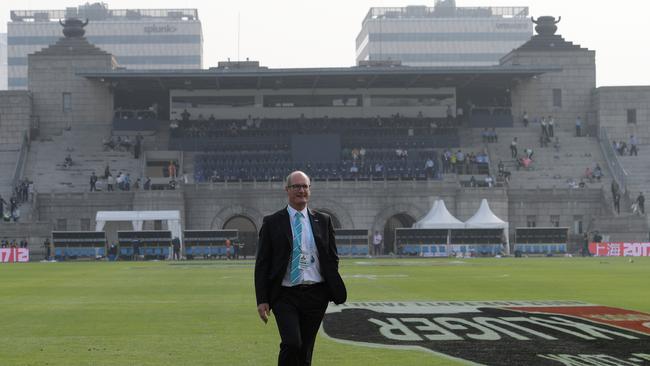
China just seemed another of David Koch’s “big vision” promises. And it was just a pre-season match in Macau he was promising. Now it is more than a game — the Power’s “China Strategy” is about big business, sports diplomacy to strengthen Australia-China political relations and the AFL finding a new international market.
The AFL and Port Adelaide are opening an office in Shanghai with three staff — two for the league and one for the Power — to advance Australian football’s search for new markets, new television partners and new commercial returns to invest in the sport’s grassroots at home.
Port Adelaide on Sunday will play its third AFL match for premiership points in Shanghai. This time the opponent is Victorian rival St Kilda — that is carrying the Victorian State government’s flag to connect with Victoria’s biggest trade partner — rather than Gold Coast. The Saints are committed to being the Power’s rival for the next three years.
The weekend’s game at the 1930s Jiangwan Stadium is the last piece of the “Festival of Australia” in China, an Australian cultural festival with 30 events across 13 Chinese cities over 10 days.
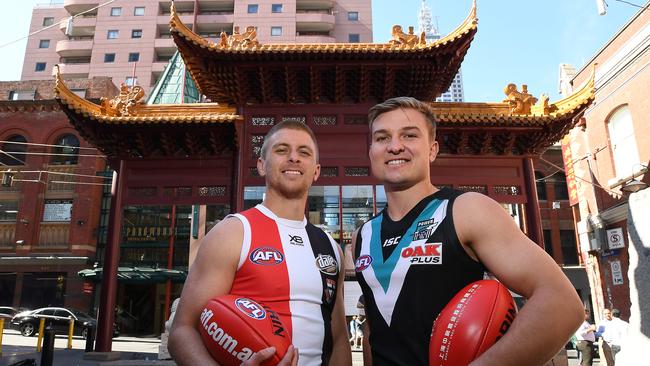
Critically, the cynics — and Koch draws many of them on social media — will ask how can the AFL put its flag in China when, unlike India with its cricket fields, suitable grounds for Australian football? And does Port Adelaide need to be spreading itself to Shanghai when there is still much to shore up at home?
At AFL House, chief executive Gillon McLachlan concedes China was a “big risk” gamble.
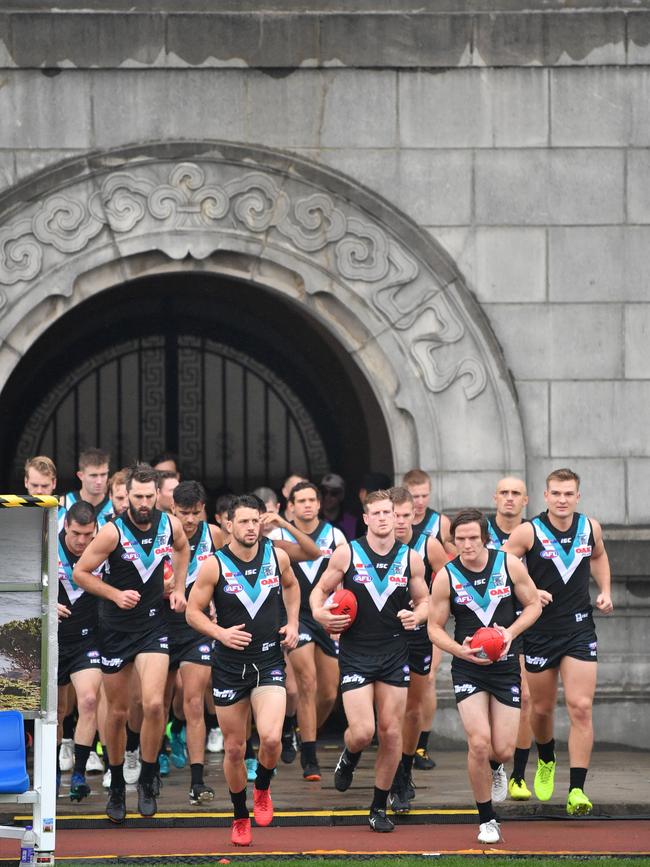
But he insists the adventure is not — as one AFL club executive put it — a “side show” nor is it burning money better spent in Australia.
“The first two games broke even and the gamble is starting to pay off,” he said. “That’s why we are opening an office in Shanghai to build on the commercial opportunities we have opened up by putting on a game each year in China.”
AFL India-China general manager David Stevenson often hears the question: “Why is the AFL in China?”
“Three reasons,” he told The Advertiser. “The most obvious is about driving revenue, so we can invest that money here in Australia in AFLW, Auskick and the grassroots of Australian football.
“But we do need to extend beyond Australia; we must grow and expand offshore, just as every other indigenous sport has done. The NFL (American football) is playing in London and Mexico.
“And there is the challenge of connecting with 1.2 million Chinese — either by birth or descent — here in Australia.
“We do pay credit to Port Adelaide’s leadership — and drive — in China; David Koch and his people deserve the credit for doing an amazing job.”
Koch measures the success of the “China Strategy” in the $6 million added to Port Adelaide’s financial books. This is 10 per cent of the Power’s $60 million annual revenue — and money he is certain could not have been found in a crowded and ultra-competitive Australian market where Port Adelaide has to work against 17 AFL rivals in a limited economy.
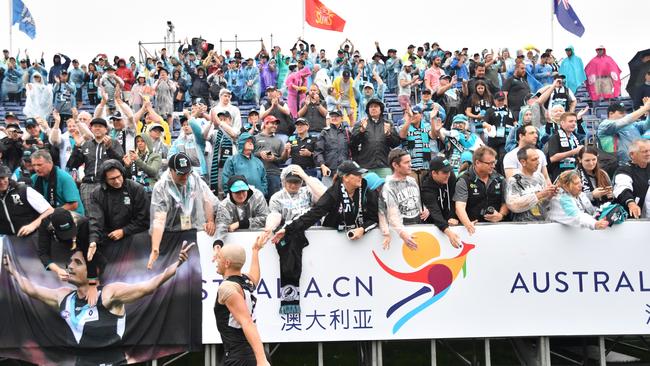
In Adelaide there certainly was no sponsor to match the money Shanghai CRED billionaire owner Guojie Gui has put up for AFL games in China.
Koch remains hopeful the break-even from the two “expensive” games played against Gold Coast in the past two seasons becomes a $500,000 profit on Sunday after playing St Kilda. He also knows he has had to calm the uncertainty on China that was building even in his own board room recently.
“I’ve had to comfort people at Port Adelaide — not just the AFL — on the risk associated with going to China,” Koch told The Advertiser.
“The game is expensive, very expensive. And we know Australian football will not become a major sport in China. We’re not stupid, we understand that.
“But this is an enormous opportunity for our club — and the benefits go well beyond the money made on game day. The commercial partners we are finding away from the Shanghai match will do more than make our club sustainable.
“We don’t just want to work to 95 per cent of the salary cap or 80 per cent of the soft cap on football spending. We want to raise money to invest more and more in our football program.
“We’ve made it to base camp (as a sustainable football club) with three years of hard work (in China). We’ve built revenue streams (in China) that are not dependant on on-field performances. We’ve given the club a sustainable business model. And we have done it in a way that can set up the club for a generation.”
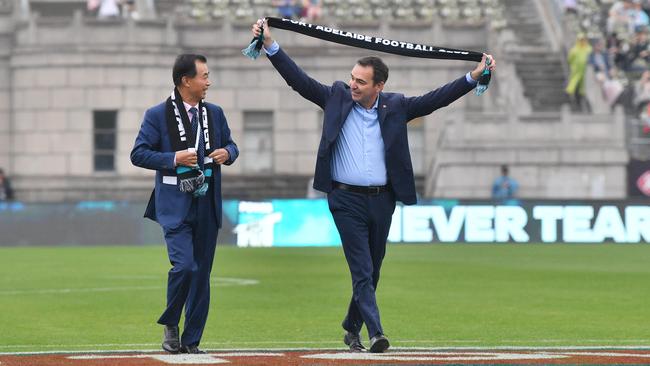
Not doubting the power of Australian football in China is the Victorian State government. It has spent millions in sponsoring Port Adelaide in Shanghai and in having St Kilda replace Gold Coast until at least 2021.
While the new Scott Morrison federal government works through its plans in China, Victoria’s Minister for Trade Martin Pakula is leading a business delegation with leading Australian chief executives to Shanghai where — on last year’s form — many deals with Chinese counterparts begin during the half-time break of the AFL game.
Koch’s promise to take the Port Adelaide Football Club to China carries far more attention — from the AFL, diplomats in Beijing and Canberra and boardrooms in Shanghai and Melbourne — than when he first put it on the agenda in March 2014.
michelangelo.rucci@news.com.au


